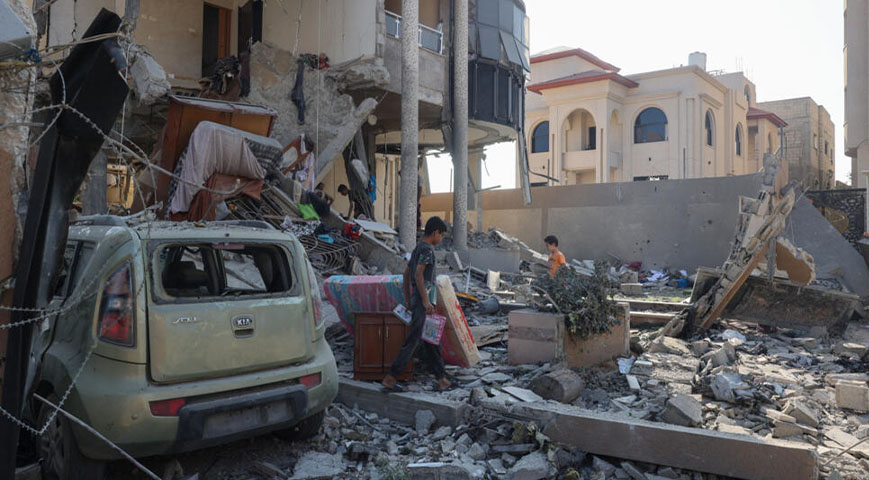A new round of ceasefire negotiations for Gaza commenced in Doha on Thursday, with significant figures, including Israel's spy chief and counterparts from the U.S., Egypt, and Qatar’s prime minister participating.
The talks are crucial as Gaza's health authorities reported a death toll exceeding 40,000 after over ten months of conflict.

This diplomatic effort aims to halt the ongoing violence in Gaza and secure the release of 115 Israeli and foreign hostages. It unfolds amid heightened tensions, especially after the assassination of Hamas leader Ismail Haniyeh in Tehran on July 31.
Did you read this?
The potential for Iran's retaliation has prompted the U.S. to position warships, submarines, and warplanes to safeguard Israel and deter further escalation.
White House national security spokesperson John Kirby acknowledged the initiation of talks but expressed skepticism about resolving on Thursday, suggesting discussions might extend into Friday.
Hamas, though accusing Israel of delays, opted out of the initial talks but is expected to be consulted later. Israel’s delegation includes key security figures, CIA Director Bill Burns, and the U.S.

Middle East envoy Brett McGurk, represent the U.S. Qatar’s prime minister Sheikh Mohammed bin Abdulrahman Al Thani and Egypt’s intelligence chief Abbas Kamel are also in attendance.
Both Israel and Hamas blame each other for the lack of progress, yet recent statements indicate a willingness to compromise. Israeli Prime Minister Benjamin Netanyahu has reportedly shown flexibility on contentious issues, which include the presence of Israeli forces in Gaza and the sequence of hostage releases.
Hamas has conveyed its readiness to negotiate if Israel proposes a solution aligning with their previous offers. Amid ongoing hostilities, particularly in Rafah and Khan Younis, civilians in Gaza, displaced and desperate, are calling for peace.
The talks, while challenging, offer a glimmer of hope for an end to the conflict, but the potential involvement of Hezbollah and Iran’s response could complicate outcomes.









